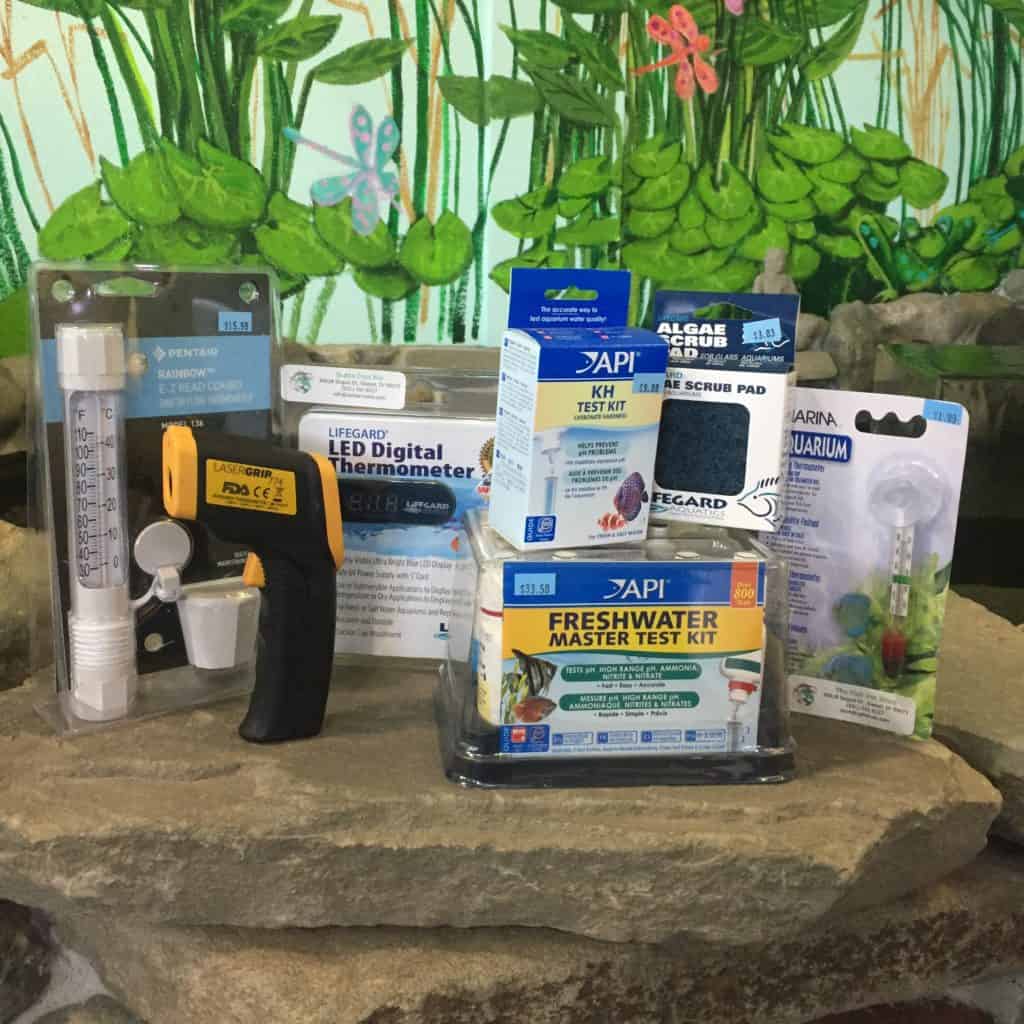**Post contains affiliate links.**
As you have heard us say, time and time again, fish tank water quality is the #1 thing pet fish owners can do to take care of their fish. Why is this? Because, just like the air we breathe, the water a fish swims in has a significant impact on its overall health. But how do you know if your fish tank water is healthy? You can’t just look at it! You have to test it!
Poor water quality can cause severe problems with secondary bacteria or fungus, swim bladder disorders and even death. It may sound like a lot to undertake, but we’ll make it easy. We have several helpful guides around our website (here, here and here) and be sure to check out our awesome Water Quality Webinar!
How do I test my fish tank water?
You’re going to need a test kit! Yes, there are convenient test strips available, and are better than nothing. Keep in mind, however, that we’ve tested these products and gotten conflicting results on different strips right out of the bottle! A liquid, drop-based test kit is a much better option and they are not too hard to use. Once you practice using them a few times, it will become very easy.
What parameters do I test?
When testing fish water, your nitrogen cycle parameters are the highest priority. These are your ammonia, nitrite and nitrate. pH and kH are extremely important as well. And don’t forget your thermometer! Fish activity and metabolism is directly linked to water temperature. Unlike us endotherms, able to regulate our internal body temperature, fish are ectotherms and rely on the water temperature to dictate their activity.
How often do I test?
With fish systems that have been in place for at least 3 months and have no changes to equipment or inhabitants, monthly testing is highly recommended. With systems that have new fish or other animals or new equipment within the last 3 months, such as pumps or filters, weekly testing is recommended.
What results are within parameters?
For koi and goldfish, your pond or tank should be within the following parameters: (These readings are based on the ranges given by the API Freshwater Master Test kit)
Ammonia: less than 0.25 mg/L, Nitrite: 0 mg/L, Nitrate: less than 40 mg/L
pH: 7.0-8.5, kH: above 100 mg/L, Temperature will vary seasonally
Tropical fish will have species-specific tolerances for ammonia, nitrate, pH, and temperature. Most communal species will be within the same ranges as koi and goldfish, but the temperature must stay between 75-85F.
Betta fish have a higher tolerance of ammonia and nitrate, but that doesn’t mean they don’t deserve a clean tank. Temperatures must be kept at 78-82F for betta fish. (Want to learn more about bettas? Check out our Betta Page or Betta Basics Webinar).
Can you recommend a good test kit?
Absolutely! Here are the best test kits on the market:


It’s interesting that you talked about how you should test your water about every month. I have been concerned about the quality of my water lately. I’ll have to have someone check it often to make sure it stays balanced.
Pingback: How to Treat Disease in Fish – Aquatic Veterinary Services
Pingback: How to Fix Poor Water Quality - Aquatic Veterinary Services